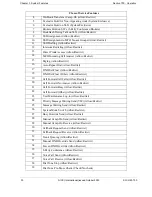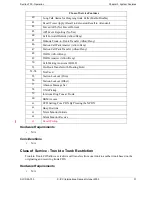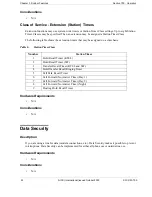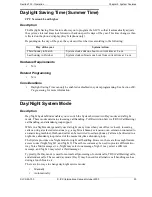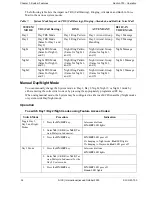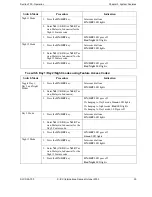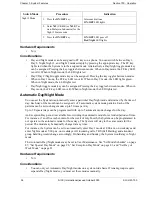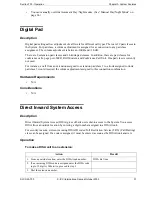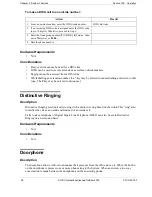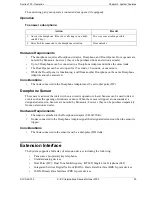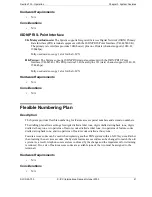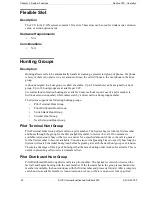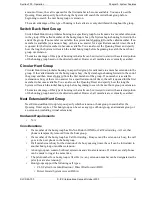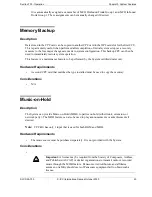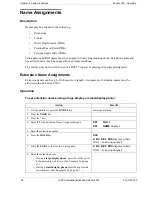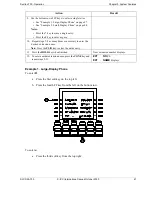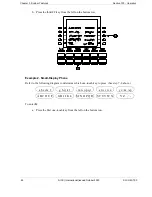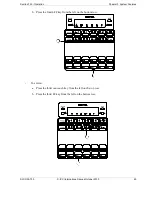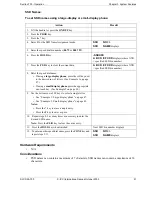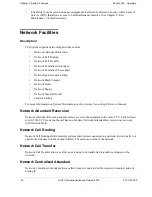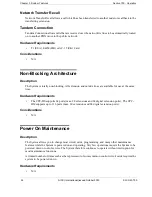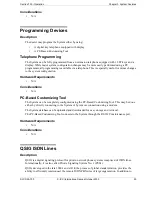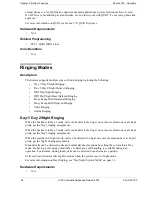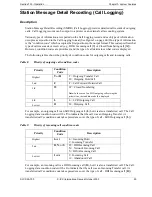
44
S-ICX (International) issued October 2000
S-ICX-50-700
Chapter 3. System Features
Section 700 - Operation
• Extension calls
• Private network attendant calls
• Call forward incoming
• Call forwarded to Attendant Hunt Group
• For Version 4.5 and higher, a queuing wait timer allows you to queue calls in a Hunt
Group for a fixed period of time. When the call has passed through the Hunt Group
once, the timer is activated and the call is re-routed to the top of the group. The system
continues to hunt for an available agent until the timer limit expires, and the call is
diverted to another location.
Internal Hold Tone
Description
If a Music-on-Hold (MOH) sound source is unavailable, a periodic hold tone generated internally in
the System can be provided to a caller. For more information, see “Music-on-Hold” on page 45.
Hardware Requirements
•
N/A
Considerations
•
N/A
MCO Tenant Group
Description
When the System is configured for tenant operation, MCO Tenant Group determines which trunk
groups are used for incoming and outgoing calls.
Each MCO trunk group is assigned to an MCO tenant group for incoming calls and for outgoing calls.
By default, Trunk Group 1 is assigned to MCO Tenant Group 1, Trunk Group 2 is assigned to MCO
Tenant Group 2, etc. for both incoming and outgoing calls.
For outgoing calls, each tenant group has 5 auto-trunk selections available. By default the first auto-
trunk selection is seized by entering
9
, the second by entering
81
, etc.
The number of MCO tenant groups available depends on the number of ports in the system as follows:
•
S-ICX: 1 to 12 MCO tenant groups
Hardware Requirements
•
N/A
Considerations
•
When you first assign a trunk to Trunk Tenant Group from the initial setting of (0), the system
automatically assigns the trunks as a member of the same number MCO Trunk Group (FF5-2 and
FF5-3). For instance, if Trunk 10 is assigned as a member of Trunk Tenant Group 1, then Trunk

